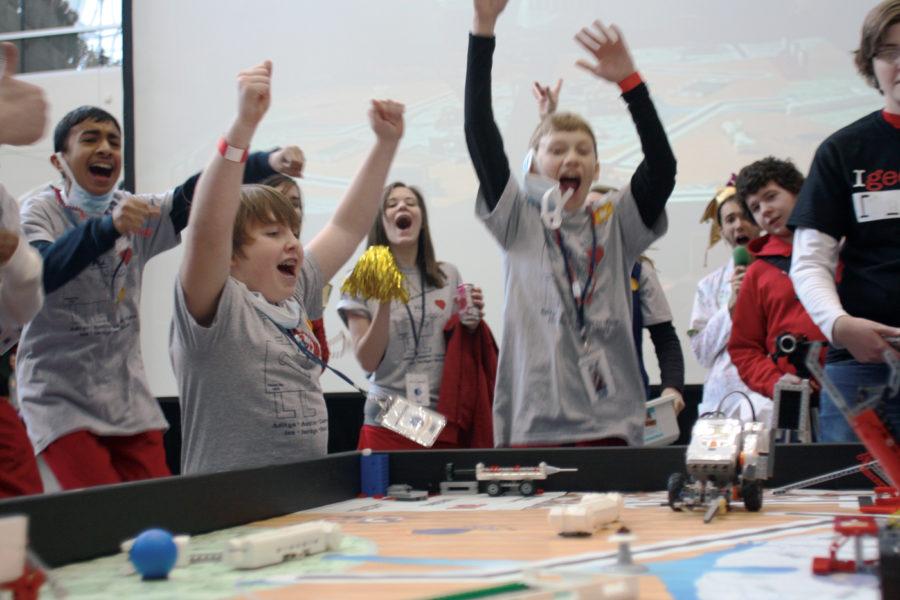ISU engineering students plan, execute state Lego robot competition
January 17, 2011
A Lego contest may seem trivial to an outsider, but for the 72 teams of 9-to-14-year-old students involved in Saturday’s FIRST Lego League State Competition, building a robot that can complete an obstacle course of tasks on its own was anything but child’s play.
Chris Tourek, graduate student in mechanical engineering and FIRST Lego League planning team co-chairman, knows this firsthand — he’s volunteered and helped plan the event for seven years.
“We ran a Lego League tournament at my high school,” Tourek said. “I found out when I was a freshman at Iowa State that we also ran a tournament, so I volunteered my first year. The next year I joined the planning team and have been on the planning side ever since.”
Tourek said the planning committee recruits for tournament volunteers in engineering courses and student organizations.
This year, about 400 ISU students registered to help with the FIRST Lego League, and were crucial to the tournament’s success, said Brandon Newendorp, graduate student in mechanical engineering and planning team co-chairman and event emcee.
“There’s no way we could support an event with more than 3,000 people attending without the support of volunteers,” Newendorp said. “We couldn’t run all the information desks, the outreach activities, the judging, the referees — it would be impossible without volunteers.”
But volunteers can also set an example for how engineering is impacting the world, Tourek said.
“Hopefully our volunteers can come out and show these kids what cool science and technology things are happening in Iowa and at Iowa State,” Tourek said.
Tourek said the planning committee spends an entire year devising the day-long event, and talk about next year’s tournament has already begun. It’s the hours put in by the planning committee that allow for each tournament to feature new, innovative components for participants.
This year’s event featured a boom crane for the first time at Saturday’s competition, which allowed a constant video feed from the Howe Hall atrium to other buildings where participants and spectators were.
The FIRST Lego League also executed a webcast of the entire event so families and friends of participants across the state could watch the teams from home, Tourek said.
But the innovative developments of the planning team aren’t the focus of FIRST Lego League, Newendorp said.
“I think it’s cool to see what the kids have accomplished every year,” Newendorp said. “It always amazes me what these 9-to-14-year olds are able to do. It’s absolutely amazing.”
“It’s great to get them excited about science and technology because it’s kind of a very big deal in today’s society,” Tourek said. “It gets them to realize it’s not that hard. They can break down the barriers that say the math and science of engineering is hard and see it’s not hard. They can see how fun it is and continue on and learn.”
And fun, not competition, is what FIRST Lego League is all about, Newendorp said.
“It’s not a competitive activity,” he said. “It’s really meant to be a chance for kids to show what they’ve learned and accomplished and to share that with others. It’s about learning opportunities — and that makes it fun.”

















